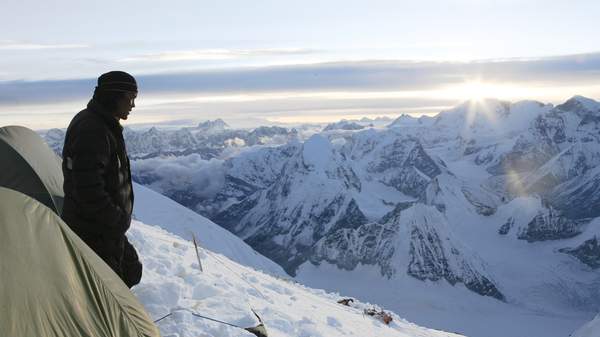Overview
Successful documentaries are often boiled down to a well-worn old adage, with the best films frequently benefiting from filmmakers simply being in the right place at the right time. The saying seems to ring true for Australian Jennifer Peedom, although calling the experienced high-altitude director 'fortunate' isn't quite appropriate. When she went to Nepal in 2014, she was motivated by reported tensions between travellers and their Sherpa guides. With the chasm between the two groups screaming for more attention, Peedom planned to make a movie about one of the local workers, the unassuming Phurba Tashi Sherpa, who was on the cusp of making history. But then nature struck, and the movie had to change.
A time capsule of the toughest climbing season imaginable, as well as an exercise in quick-thinking filmmaking at its best, Sherpa is undoubtedly the superior Everest-based movie of the last 12 months. Forget re-enactments, high-profile actors looking frosty, strained accents and 3D special effects. In capturing the blackest day the mountain has ever seen with on-the-ground footage of a tragedy unfolding, as well as the build up to the Khumbu Icefall avalanche and the harrowing, heartbreaking aftermath, the film presents devastating details that could only spring from real life.
Phurba's feat — ascending the world's highest peak for a record-breaking 22nd time — would've made a rousing story in its own right, as well as a powerful testament to the largely unrecognised role the Sherpa people play in the mountain's growing tourism industry. The weather had other plans, however. As the ice and snow began to move, his tale became even more emblematic of the broader situation facing Nepalese residents, and brought the appalling labour conditions of the Sherpas, who make wealthy Westerners' treks possible, sharply into focus.
With the precision of a master craftsperson and the breathtaking vision to match, Peedom balances the personal plight of one pivotal figure with the anger-inspiring human rights issues that surround the mountain. Viewers will find themselves simultaneously marvelling at the images Peedom and her trio of cameramen have recorded, and wanting to leap out of their seat with frustration at the dangers the Sherpas face just to make a living.
In that way, Sherpa is more than just a tale of triumph over adversity. Instead, it's a high-stakes, high-altitude dissection of commercial and financial interests triumphing over a very human cost, as pieced together with an insider's perspective and understanding. Interviewees hail from all sides of the business of climbing, but there's never any doubting the film's allegiances. That's not a consequence of Peedom's lack of balance, but simply a reflection of the galling reality on the mountain. Offering an astonishing account of a just-as-astonishing slice of life, documentary filmmaking doesn't get much better than this.
